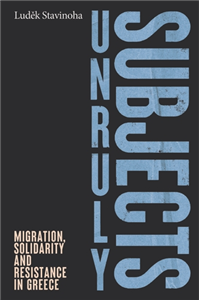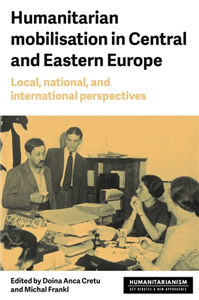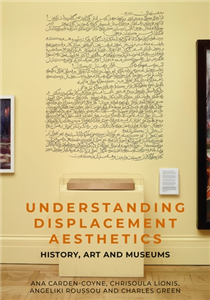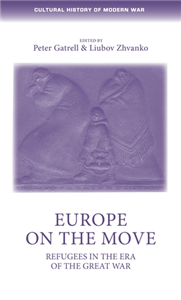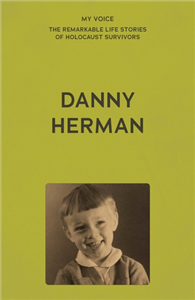Your Search Results
-
Guangdong Economy Publishing House Co., Ltd.
Guangdong Economics Publishing House Co., Ltd. is a leading professional publisher in China who aims at deliver engaging and adaptive solutions to readers in the fields of business management, investment, marketing & advertising, personal finance,military and scholarly monography in print and electrically. Located in Guangzhou, the capital city of Guangdong Province, the publishing house takes editing, publishing and distributing books, magazines, digital publication as well as copyright trading as its major business.Founded in 1995, we now publish over 500 books annually and provide our diversified products to readers all over China as well as overseas customers in Asia and Europe,. We joined the Guangdong Publishing Group in 1999 and now as a member of the Southern Publishing and Media Company Ltd., which went to the market in 2016, we look to a brighter future and greater marker globally.
View Rights Portal
-
Promoted ContentHumanities & Social SciencesJuly 2026
Unruly subjects
Migration, solidarity and resistance in Greece
by Ludek Stavinoha
Unruly Subjects takes readers to the epicentre of Europe's intensifying border struggles-the Aegean islands in Greece, where thousands of 'undesirable' migrants have been warehoused and violently abandoned in EU-funded refugee camps. Drawing on nearly a decade of research, Ludek Stavinoha reveals the subterranean corners in which resistance brews and solidarity takes hold, tracing migrants' everyday struggles for dignity and their rights, alongside grassroots volunteers who have built vital infrastructures of support. At the heart of the book are the creative, if precarious and ambivalent, solidarities forged between volunteers and refugees, citizens and non-citizens, as they unsettle racialised boundaries and logics of control, in defiance of state-sanctioned violence, criminalisation, and neglect. Urgent and compelling, Unruly Subjects illuminates how people navigate and subvert Europe's increasingly hostile border regime, and the alternative imaginaries of more just futures their struggles embody.
-
Promoted ContentHumanities & Social SciencesNovember 2025
Humanitarian mobilisation in Central and Eastern Europe
Local, national, and international perspectives
by Doina Anca Cretu, Michal Frankl
By focusing on aid Central and Eastern Europe, the volume adds to the existent scholarly explorations of modern humanitarianism, its actors and practices. In the twentieth century, aid workers assisted victims of war and earthquakes, delivered food, supported health care, provided childcare, or sheltered refugees. The contributors not only reconstruct these diverse histories and their protagonists, but also bring international, national, and local actors together: from grassroots activists to private associations to state-driven "socialist humanitarians" to large Western aid organizations. In doing so, they challenge the often unidirectional, from West-to-East, and asymmetrical perspective on donor-recipient relationships in humanitarian processes.
-
 Trusted Partner
Humanities & Social SciencesJuly 2010
Trusted Partner
Humanities & Social SciencesJuly 2010Refugee women in Britain and France
by Gill Allwood, Khursheed Wadia
This book is about the lives of refugee women in Britain and France. Who are they? Where do they come from? What happens to them when they arrive, while they wait for a decision on their claim for asylum, and after the decision, whether positive or negative? It shows how laws and processes designed to meet the needs of men fleeing political persecution often fail to protect women from persecution in their home countries and fail to meet their needs during and after the decision-making process. It portrays refugee women as resilient, resourceful and potentially active participants in British and French social, political and cultural life. It exposes the obstacles that make active participation difficult. The book is an authoritative and thorough synthesis of all available material on refugee women in Britain and France. The style is accessible and highly readable, making this an ideal book for academics, students and interested readers. ;
-
 Trusted Partner
Humanities & Social SciencesJanuary 2026
Trusted Partner
Humanities & Social SciencesJanuary 2026Understanding displacement aesthetics
History, art and museums
by Ana Carden-Coyne, Charles Green, Chrisoula Lionis, Angeliki Roussou
Since the Second World War and the formalisation of the international refugee regime, forced displacement has been marked by a set of aesthetic, practical, and institutional concerns. Understanding Displacement Aesthetics examines how visual culture and art practice constructs and challenges ideas about forced displacement and refugees. The novel framework for 'displacement aesthetics' moves beyond conventional understandings of aesthetics as merely representational, demonstrating the entanglement of visual culture, art practices, and forced displacement in postmigrant contexts. Bringing together the fields of cultural history, art history, and curatorial studies, Understanding Displacement Aesthetics identifies four areas for consideration: visual tropes of refugeedom; language and identity; institutional and artistic responses to displacement; and lived experiences of artists with backgrounds of displacement. Through archival research, visual culture and art, interviews, and collaborative curatorship, Understanding Displacement Aesthetics offers new insight into overcoming the limitations that contexts of displacement can present for artists, art galleries and institutions addressing refugeedom and its legacies.
-
 Trusted Partner
Humanities & Social SciencesJune 2019
Trusted Partner
Humanities & Social SciencesJune 2019Europe on the move
Refugees in the era of the Great War
by Peter Gatrell, Liubov Zhvanko, Penny Summerfield
Mass population displacement affected millions of Europe's civilians across the different theatres of war in 1914-18. At the end of the war, a senior Red Cross official wrote 'there were refugees everywhere. It was as if the entire world had to move or was waiting to move'. Europe on the move is the first attempt to understand their experiences as a whole and to establish the political, social and cultural significance and ramifications of the wartime refugee crisis. Drawing on original research by leading specialists from more than a dozen countries, it will become the definitive work on the subject and will appeal to anyone who wishes to understand how governments and public opinion responded to refugees a century ago.
-
 Trusted Partner
Humanities & Social SciencesSeptember 2020
Trusted Partner
Humanities & Social SciencesSeptember 2020Refugees and the violence of welfare bureaucracies in Northern Europe
by Dalia Abdelhady, Nina Gren, Martin Joormann
-
 Trusted Partner
Trusted Partner
-
 Trusted Partner
Humanities & Social SciencesJanuary 2013
Trusted Partner
Humanities & Social SciencesJanuary 2013The Jews in western Europe, 1400–1600
by John Edwards
As European politics, society, economy and religion underwent epoch-making changes between 1400 and 1600, the treatment of Europe's Jews by the non-Jewish majority was, then as in later periods, a symptom of social problems and tensions in the Continent as a whole. Through a broad-ranging collection of documents, John Edwards sets out to present a vivid picture of the Jewish presence in European life during this vital and turbulent period. Subjects covered include the Jews' own economic presence and culture, social relations between Jews and Christians, the policies and actions of Christian authorities in Church and State. He also draws upon original source material to convey ordinary people's prejudices about Jews, including myths about Jewish 'devilishness', money-grabbing, and 'ritual murder' of Christian children. Full introductory and explanatory material makes accessible the historical context of the subject and highlights the insights offered by the documents as well as the pitfalls to be avoided in this area of historical enquiry. This volume aims to provide a coherent working collection of texts for lecturers, teachers and students who wish to understand the experience of Jewish Europeans in this period.
-
 Trusted Partner
Humanities & Social SciencesMay 2025
Trusted Partner
Humanities & Social SciencesMay 2025Statelessness after Arendt
European refugees in China and the Pacific during the Second World War
by Kolleen Guy, Jay Winter
This book is a study of statelessness in the period of the Second World War. It breaks new ground by focusing not on Europe, but on the Asian and Pacific theatres of the conflict. This perspective enables us to go beyond Hannah Arendt's classic account of statelessness in her Origins of Totalitarianism. To her, statelessness was the product of a failed European nation-state system. We find a very different story when we examine the history of stateless people, many of them Jews, fleeing to Asia from Europe. In Asia, we see that being stateless was not a uniform experience, but a variety of possibilities reflecting the political structure of the states and cities in which refugees found shelter. We find too that stateless people managed to enter the political realm long before they reached the threshold of citizenship.
-
 Trusted Partner
Humanities & Social SciencesOctober 2008
Trusted Partner
Humanities & Social SciencesOctober 2008The social context of economic change in Britain
Between policy and performance
by Terrence Casey
This important book, newly available in paperback, examines a period of dramatic economic change in Britain during the Thatcher era. The Conservatives' free market policies generally improved the performance of the economy in Britain, but some parts of the country still did poorly (for example northern England). Casey argues that this was as a result of variations in social contexts - a combination of institutions, interests and economic culture. Southern England, possessing a more individualistic culture and higher levels of entrepreneurialism, has a 'market responsive' social context that can prosper under free market policies. Social context is thus a crucial intervening variable between the policies selected by decision-makers and the performance of economies, the key for enhancing prosperity is the proper match between economic policies and the context in which they are implemented. The social context of economic change in Britain provides an original theoretical framework linking economic growth and civil society and offers a unique insight into the Thatcher era. This book will be of interest to students of British politics and comparative political economy, public policy and political history. ;
-
 Trusted Partner
Humanities & Social SciencesMarch 2014
Trusted Partner
Humanities & Social SciencesMarch 2014Transforming conflict through social and economic development
Practice and policy lessons from Northern Ireland and the Border Counties
by Sandra Buchanan
Transforming conflict through social and economic development examines lessons learned from the Northern Ireland and Border Counties conflict transformation process through social and economic development and their consequent impacts and implications for practice and policymaking, with a range of functional recommendations produced for other regions emerging from and seeking to transform violent conflict. It provides, for the first time, a comprehensive assessment of the region's transformation activity, largely amongst grassroots actors, enabled by a number of specific funding programmes, namely the International Fund for Ireland, Peace I, II and III and INTERREG I, II and IIIA. These programmes have been responsible for a huge increase in grassroots practice which to date has attracted virtually no academic analysis; this book seeks to fill this gap. In focusing on the politics of the socioeconomic activities that underpinned the elite negotiations of the peace process, key theoretical transformation concepts are firstly explored, followed by an examination of the social and economic context of Northern Ireland and the border counties. The three programmes and their impacts are then assessed before considering what policy lessons can be learned and what recommendations can be made for practice. This is underpinned by a range of semi-structured interviews and the author's own experience as a project promoter through these programmes in the border counties for more than a decade. The book will be essential reading for students, practitioners and policymakers in the fields of peace and conflict studies, conflict transformation, peacebuilding, post-agreement reconstruction and the political economy of conflict and those interested in contemporary developments in the Northern Ireland peace process. ;
-
 Trusted Partner
Humanities & Social SciencesSeptember 2024
Trusted Partner
Humanities & Social SciencesSeptember 2024My Voice: Danny Herman
by Danny Herman
Danny Herman was born in 1935 in Königsberg in East Prussia. As the Nazis were rounding up Jews, Danny's father managed to escape to England in July 1939. He travelled to the Kitchener Camp in Kent, which helped refugees secure visas for safer places. Danny and his mother arrived in England just three days before war was declared in 1939, and his father was later sent to an internment camp on the Isle of Man. Danny went on to become a successful runner, competing in many international athletics events and volunteering in many roles, including at the 2002 Commonwealth Games. Danny's detailed memories of arriving in England, initially at the seaside in Kent and then moving to Manchester, create a vivid picture of life-changing events as experienced by a young child. Danny's book is part of the My Voice book collection, a stand-alone project of The Fed, the leading Jewish social care charity in Manchester, dedicated to preserving the life stories of Holocaust survivors and refugees from Nazi persecution who settled in the UK. The oral history, which is recorded and transcribed, captures their entire lives from before, during and after the war years. The books are written in the words of the survivor so that future generations can always hear their voice. The My Voice book collection is a valuable resource for Holocaust awareness and education.
-
 Trusted Partner
Humanities & Social SciencesOctober 2021
Trusted Partner
Humanities & Social SciencesOctober 2021Ireland and the European Union
Economic, political and social crises
by Michael Holmes, Kathryn Simpson, Dimitris Papadimitriou, Kathryn Simpson, Paul Tobin
This book examines how Ireland's relationship with the EU was affected by a succession of crises in both the Republic of Ireland and Northern Ireland. The financial crisis, the Brexit crisis and the migration crisis were not of equal significance on the island of Ireland. The financial crisis was a huge issue for the Republic but not Northern Ireland, Brexit had a major impact in both polities, the migration and populism issues were less controversial, while foreign policy challenges had a minimal impact. The book provides a summary of the main features of each of the crises to be considered, from both the EU and the Irish perspective. Ireland and the European Union is the first volume of its kind to provide a comprehensive analysis on British-Irish relations in the context of Brexit. It assesses the Withdrawal Agreement and Protocol on Ireland/Northern Ireland, the devolution settlement and the 1998 Agreement, as well as the European dimension to Northern Ireland's peace process. The contributors explore a number of policy areas that are central to the understanding of each of the crises and the impact of each for Ireland. Chapters examine issues such as security, migration and taxation as well as protest politics, political parties, the media, public opinion and the economic impact of each of these crises on Ireland's relationship with the EU.
-
 Trusted Partner
Medicine
Trusted Partner
MedicineHumanitarian Aid
Encounters with People in Need
by Joachim Gardemann
Joachim Gardemann outlines his encounters and experiences as a pediatrician in crisis zones while working for the Red Cross all over the world. He describes people in existential emergency situations, who have been traumatized but survived a genocide on the border with Rwanda. People who have fled from civil wars in Congo or escaped from the Kosovo war. He traces the suffering of people in Iran, China and Haiti after losing their relatives and all their possessions in severe earthquakes. At their moments of greatest vulnerability, in the shelters and dirt of a refugee camp in Jordan, he meets people who have fled from the turmoil of the civil wars in Sudan and Syria. He sketches poignant portraits of the victims of the tsunami disaster in Sri Lanka. He gives a striking account of the devastation wrought by the Ebola epidemic in Sierra Leone. He creates a worthy memorial to those who died of Ebola, who lost their lives as doctors and nurses in the fight against Ebola as well as to those who survived.
-
 Trusted Partner
Business, Economics & LawJune 2025
Trusted Partner
Business, Economics & LawJune 2025Foundations of social ecological economics
The fight for revolutionary change in economic thought
by Clive L Spash
This book explores radical dissent from orthodox mainstream economics, and sets out a theoretically grounded vision for the emerging paradigm of social ecological economics. At the heart of this paradigmatic shift lies an acknowledgement of the inextricable embeddedness of economies in biophysical reality and social structure. The struggle for this transformative vision unfolds through a critical examination of mainstream environmental thought, followed by a nuanced evaluation of contributions from Marxists, socialists, critical institutionalists, feminists and Post-Keynesians grappling with the urgent environmental crisis. Synthesising insights from these diverse and heterodox schools, the book navigates the philosophical underpinnings of science, embracing a critical realist approach that challenges not only mainstream economic thought but also eclectic pluralism, relativism and strong constructionism. The question of what constitutes revolutionary science is explored in light of works by Kuhn, Schumpeter and Neurath, emphasising the pivotal role of values and ideology in works from Marx to Gramsci. Building on these radical and philosophical foundations, the book articulates a preanalytic vision of social ecological economics, dismantling entrenched notions of growth and efficiency in favour of a framework centered on social provisioning and needs embedded in ethics. In a thought-provoking conclusion, the book applies its analytical lens to the multiple crises of modernity within industrialised capital-accumulating economies. An agenda for social ecological transformation toward diverse alternative economies emerges, providing a compelling call to action in the face of contemporary challenges.
-
 Trusted Partner
Humanities & Social SciencesSeptember 2018
Trusted Partner
Humanities & Social SciencesSeptember 2018Race and the Yugoslav region
Postsocialist, post-conflict, postcolonial?
by Catherine Baker, Gurminder Bhambra
This is the first book to situate the territories and collective identities of former Yugoslavia within the politics of race - not just ethnicity - and the history of how ideas of racialised difference have been translated globally. The book connects critical race scholarship, global historical sociologies of 'race in translation' and south-east European cultural critique to show that the Yugoslav region is deeply embedded in global formations of race. In doing this, it considers the everyday geopolitical imagination of popular culture; the history of ethnicity, nationhood and migration; transnational formations of race before and during state socialism, including the Non-Aligned Movement; and post-Yugoslav discourses of security, migration, terrorism and international intervention, including the War on Terror and the present refugee crisis.
-
 Trusted Partner
Teaching, Language & ReferenceAugust 2024
Trusted Partner
Teaching, Language & ReferenceAugust 2024Aid to Armenia
Humanitarianism and intervention from the 1890s to the present
by Joanne Laycock, Francesca Piana
Interventions on behalf of Armenia and Armenians have come to be identified by scholars and practitioners alike as defining moments in the history of humanitarianism. This book reassesses these claims, critically examining a range of interventions by governments, international and diasporic organizations, and individuals that aimed to 'save Armenians'. Drawing on multidisciplinary perspectives, it traces the evolution of these interventions from the late-nineteenth century to the present day, paying particular attention to the aftermaths of the genocide and the upheavals of the post-Soviet period. The contributions connect diverse places (the Caucasus, Russia, the Middle East, Europe, North America, South America, and Australia) to reveal shifting transnational networks of aid and intervention. Aid to Armenia explores this history, and engages critically with contemporary humanitarian questions facing Armenia, the South Caucasus region and the wider diaspora.
-
 Trusted Partner
April 2024
Trusted Partner
April 2024Schmerz Camp
by Patty Kim Hamilton
Sieben Frauen in einer renommierten, surrealen Schmerzklinik: Im ewigen Kreislauf von Therapien und Gesprächen mit den Ärzt:innen probieren die Patientinnen Medikamente aus, töpfern, meditieren, treiben Sport – der Schmerz aber bleibt. Scheinbar geschieht mit den Frauen in der Klinik nichts und doch ist alles in ständiger, minimaler Bewegung. Zeit vergeht hier anders. Dabei ist der alternde, weiblich gelesene Körper ein zentrales Motiv. Sprache und Dialoge basieren auf realen Gesprächen und Klinikfragebögen – werden bereichert von chorischen Passagen, Lyrik und performativen Naturbildern, die eine neue Dimension aufmachen: Wo finden wir Trost und wie kann ein Weg durch den Schmerz aussehen? Das Theaterstück Schmerz Camp ist ein Plädoyer für das ehrliche Zuhören, für mehr Achtsamkeit und eine solidarische Gemeinschaft. Patty Kim Hamilton sucht darin nach dem Alltäglichen, dem Humor, der Zärtlichkeit, dem Einfachen vor dem dunklen Abgrund und findet dabei eine virtuose Sprache für etwas, das sich mit Worten kaum fassen lässt.
-
 Trusted Partner
Science & MathematicsApril 2021
Trusted Partner
Science & MathematicsApril 2021Medicalising borders
Selection, containment and quarantine since 1800
by Sevasti Trubeta, Christian Promitzer, Paul Weindling, Hastings Donnan
The research of pandemics, epidemics, and pathogens like COVID-19 reaches far beyond the scope of biomedicine. It is not only an objective for the health, political and social sciences, but epidemics and pandemics are a matter of geography: foci and vectors of communicable diseases continue to test the efficacy of medical control at state borders. This volume illuminates these issues from various disciplinary viewpoints. It starts by exploring historical models of quarantine, spatial isolation and detention as precautionary means against the dissemination of disease and contagion by border crossers, migrants and refugees. Besides the patterns of prejudice with which these groups are confronted, the book also deals with various kinds of fear of contamination from outside of the nation state. The contributors address the implementation of medical techniques at state borders in the twentieth and early twenty-first centuries, as well as the presently practiced measures of medical and biometric screening of migrants and refugees. Uniquely, this volume shows that the current border security regimes of Western states exhibit a high share of medicalised techniques of power, which originate both in European modernity and in the medical and biological disciplines developed during the last quarter of the millennium. Drawing on the collective expertise of a network of international researchers, this interdisciplinary volume is essential reading for those wishing to understand the medicalisation of borders across the globe, from the early eighteenth century up to the present day.
-
 Trusted Partner
Humanities & Social SciencesOctober 2023
Trusted Partner
Humanities & Social SciencesOctober 2023Towards a just Europe
A theory of distributive justice for the European Union
by João Labareda
This highly original book constitutes one of the first attempts to examine the problem of distributive justice in the European Union in a systematic manner. João Labareda argues that the set of shared political institutions at EU level, including the European Parliament and the Court of Justice of the EU, generate democratic duties of redistribution among EU citizens. Furthermore, the economic structure of the EU, comprising a common market, a common currency and a free-movement area, triggers duties of reciprocity among member states. The responsibilities to fulfil these duties, Labareda argues, should be shared by the local, national and supranational levels of government. Not only should the EU act as a safety net to the national welfare systems, applying the principle of subsidiarity, but common market and Eurozone regulations should balance their efficiency targets with fair cooperation terms. The concrete policy proposals presented in this book include a threshold of basic goods for all EU citizens, an EU labour code, a minimum EU corporate tax rate and an EU fund for competitiveness. Labarada argues that his proposals match the political culture of the member states, are economically feasible, can be translated into functioning institutions and policies and are consistent with the limited degree of social solidarity in Europe. This book is a major contribution to the understanding of what a just Europe would look like and what it might take to get us there. This book is relevant to United Nations Sustainable Development Goal 10, Reduced inequalities




